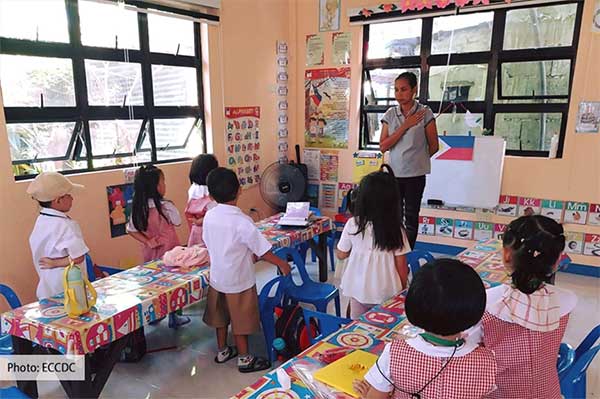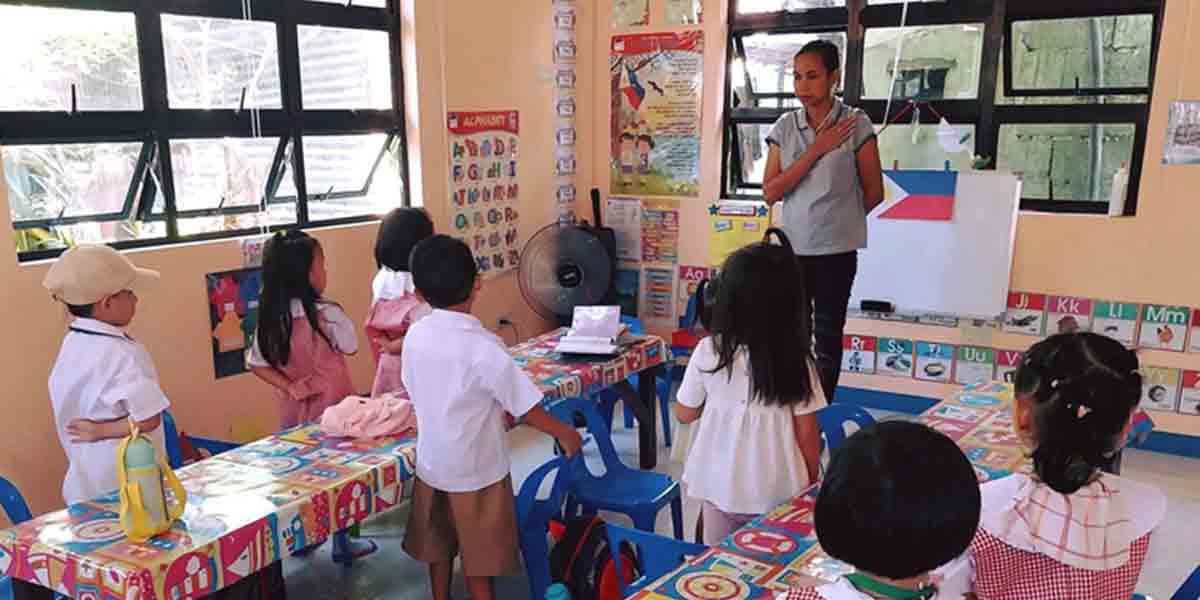
A study by the Philippine Institute for Development Studies (PIDS) reveals alarming trends in early childhood development (ECD) in the Philippines, with high mortality rates, chronic malnutrition, and low vaccination rates underscoring the need for immediate action.
According to the PIDS paper, infant mortality rates in the Philippines stand at 21 per 1,000 live births, and 1 in 3 children suffers from chronic malnutrition. Low vaccination rates—only 75 percent of Filipino children are fully immunized—further highlight the pressing need for systemic reforms in health, nutrition, and education. These findings emphasize the necessity for a comprehensive approach to address persistent gaps in the country’s ECD programs.
The study titled “Behind the Slow Start: An Assessment of Early Childhood Care and Development in the Philippines”, was presented by PIDS Senior Research Fellow Valerie Gilbert Ulep during a recent webinar. It identifies fragmented governance, underfunded programs, and limited access to essential services as major obstacles to effective ECD delivery. Ulep stressed that these systemic issues are compounded by inconsistent training and disparities in local government spending on ECD programs, many of which rely on volunteer-driven efforts that often lack continuity.
Furthermore, the study highlights that only 20 percent of children meet recommended energy intake levels, reflecting inadequate nutrition interventions. Feeding programs during the critical first 1,000 days of life show minimal impact, while educational disparities remain stark, with only 20 percent of children aged 3 to 4 attending preschool in 2022. These gaps raise serious concerns about the ability of current programs to expand effectively without significant public investment.
The severity of these issues is further compounded by stark socioeconomic disparities. “If you examine the disparity across socioeconomic statuses, the variation is striking—the poorest households experience outcomes that are five times worse than their wealthiest counterparts. This kind of disparity is not commonly observed in neighboring countries like Thailand, Malaysia, or even Viet Nam.” Ulep stated. This highlights the urgent need to address inequities in access to essential services and resources.
To address these challenges, Ulep emphasized the need for a life-course approach to ECD, with interventions targeting the period from pregnancy through early childhood. Critical steps include improving maternal nutrition, expanding prenatal and postnatal care, and ensuring comprehensive vaccination coverage. “There is no single intervention that can address the health and nutrition challenges in the Philippines; there are no shortcuts. A range of interventions must be delivered at critical periods, from pregnancy to childhood, and what we are observing is that there are challenges at every stage,” Ulep explained.
Systemic governance, financing, and infrastructure reforms are essential to enhance service delivery. Ulep also suggested innovative financing models, such as vouchers and block grants, to bridge gaps and increase demand for early education. Additionally, leveraging national resources, such as those under the Universal Health Care Act, was highlighted as a strategy to improve ECD services.
Echoing these calls for reform, Early Childhood Care and Development Council (ECCDC) Planning Officer Karl Jeffrey Sabalza underscored the importance of optimizing both local and national ECD investments. According to him, a key part of the strategic action is to integrate ECCD programs into the Department of Budget and Management’s Program Convergence Budgeting. This will allow for proper analysis of how the budget will be allocated and utilized, and which sectors should be responsible for providing the necessary services.
“Additionally, part of the advocacy involves launching a comprehensive campaign, particularly targeting local government units (LGUs) and engaging with the LGU leagues and the Union of Local Authorities of the Philippines,” Sabalza added.
To strengthen the implementation of ECD initiatives, Sabalza said ECCDC focuses on building the capacities of LGUs, improving interagency coordination, incentivizing best practices, and leveraging the Mandanas ruling for resource allocation. He also recommended tapping alternative funding sources, such as the Special Education Fund (SEF) and Gender and Development Fund. For instance, he noted that increasing SEF allocation could bolster local ECD resources.
Ulep and Sabalza stressed the need for evidence-based programs, equitable resource allocation, and continuous assessment to ensure impactful ECD initiatives. Both speakers agreed that the Philippines needs better investment in programs, more consistent policies, and fair distribution of resources to ensure every child has a better start in life.





















